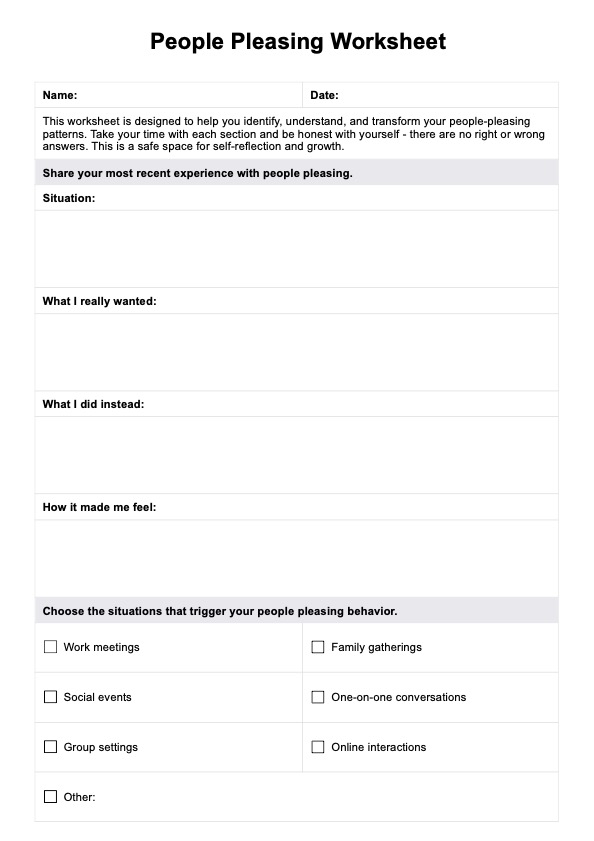While it's natural to want to please others occasionally, chronic people pleasing at the expense of one's own needs is unhealthy. Balance is key.

People Pleasing Worksheet
Access our People Pleasing Worksheet to help clients overcome people pleasing behaviors and establish healthy boundaries.
Use Template
People Pleasing Worksheet Template
Commonly asked questions
Signs include difficulty saying no, prioritizing others' needs over your own, and feeling uncomfortable when others are displeased with you.
Yes, therapy can be highly effective in addressing the underlying issues that contribute to people pleasing behaviors, helping individuals develop healthier ways of relating to others.
EHR and practice management software
Get started for free
*No credit card required
Free
$0/usd
Unlimited clients
Telehealth
1GB of storage
Client portal text
Automated billing and online payments











